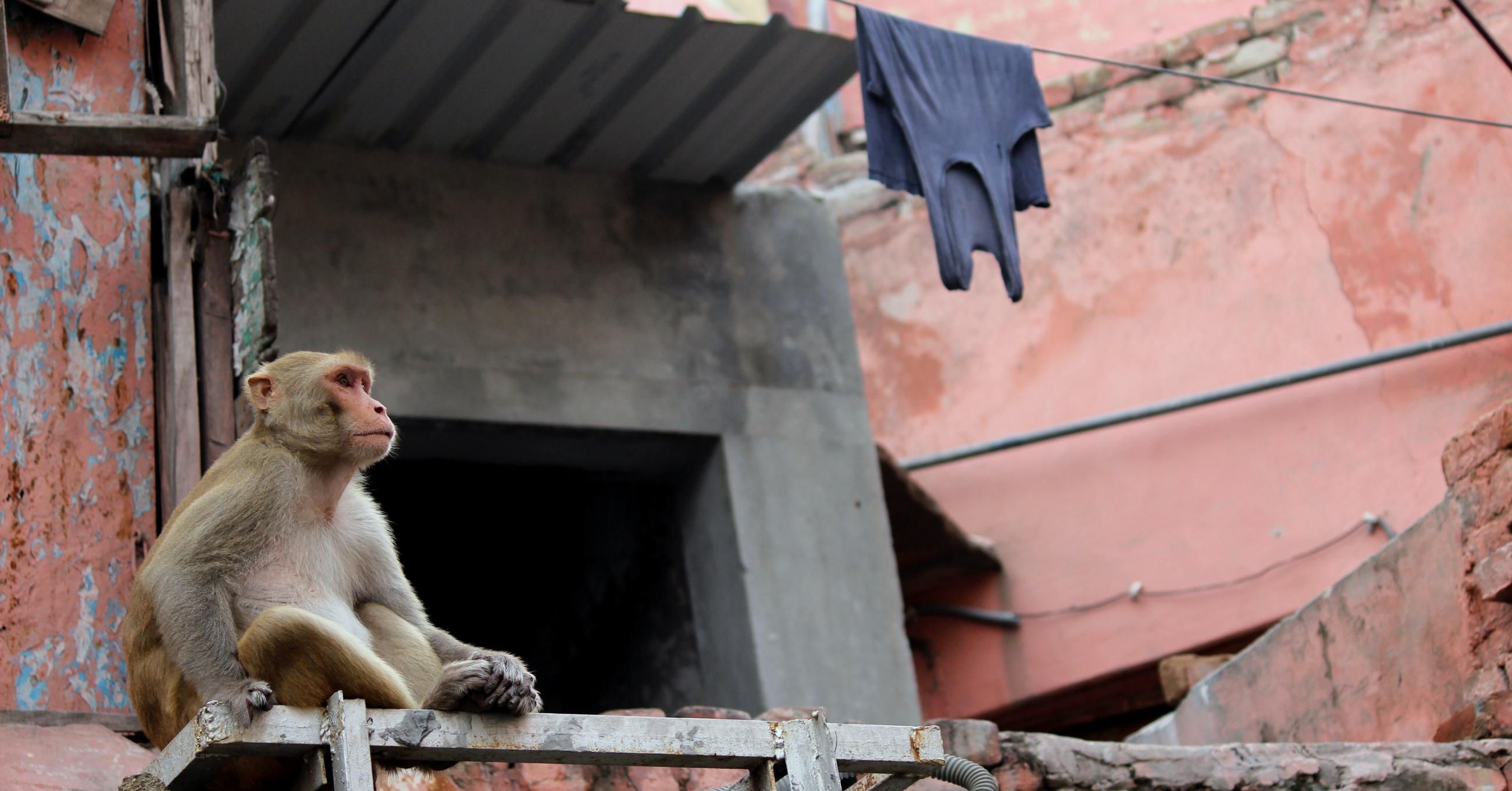
Over two years into the Covid-19 crisis, an analysis revealed Thursday how the climate emergency is expected to push wild animals into regions more heavily populated with humans, conditions that could spread viruses across species and even lead to future pandemics.
"When a Brazilian free-tailed bat makes it all the way to Appalachia, we should be invested in knowing what viruses are tagging along."
"This mechanism adds yet another layer to how climate change will threaten human and animal health, said Gregory Albery, the paper's co-lead author and a postdoctoral fellow at Georgetown University, in a statement.
"It's unclear exactly how these new viruses might affect the species involved," he added, "but it's likely that many of them will translate to new conservation risks and fuel the emergence of novel outbreaks in humans."
For the analysis, published in the journal Nature, a team led by Georgetown scientists identified potential future hotspots for spillover—the spread of pathogens from animals to people—by modeling projected geographic shifts for 3,139 mammal species through 2070.
"We predict that species will aggregate in new combinations at high elevations, in biodiversity hotspots, and in areas of high human population density in Asia and Africa, driving the novel cross-species transmission of their viruses an estimated 4,000 times," the study states.
Colin Carlson, a co-lead author and an assistant research professor at Georgetown, explained that "the closest analogy is actually the risks we see in the wildlife trade."
"We worry about markets because bringing unhealthy animals together in unnatural combinations creates opportunities for this stepwise process of emergence—like how SARS jumped from bats to civets, then civets to people," he said. "But markets aren't special anymore; in a changing climate, that kind of process will be the reality in nature just about everywhere."
The paper notes that "because of their unique dispersal capacity, bats account for the majority of novel viral sharing, and are likely to share viruses along evolutionary pathways that will facilitate future emergence in humans." The researchers warn that Southeast Asia, a global hotspot of bat diversity, could be greatly impacted.
Though transmission from a bat is suspected, the origin of the virus that causes Covid-19 has not been identified. However, as the death toll has climbed over the past couple of years, experts have ramped up demands for further action to address zoonoses, diseases that are transmissible from animals to humans. The new paper and its authors similarly called for action.
"Surprisingly, we find that this ecological transition may already be underway, and holding warming under 2°C within the century will not reduce future viral sharing," the analysis says. "Our findings highlight an urgent need to pair viral surveillance and discovery efforts with biodiversity surveys tracking species' range shifts, especially in tropical regions that harbor the most zoonoses and are experiencing rapid warming."
Albery told The Guardian that "this is happening, it's not preventable even in the best case climate change scenarios, and we need to put measures in place to build health infrastructure to protect animal and human populations."
Sam Scheiner, a program director with the U.S. National Science Foundation—which funded the new research—said that "the Covid pandemic, and the previous spread of SARS, Ebola, and Zika, show how a virus jumping from animals to humans can have massive effects. To predict their jump to humans, we need to know about their spread among other animals."
As The New York Times reported:
The researchers were not able to say exactly which viruses would move between which species. What matters, they argued, is the sheer scale of what's to come.
"When you're trying to predict the weather, you don't predict individual raindrops," said Christopher Trisos, an ecologist at the University of Cape Town and a co-author of the new study. "You predict the clouds themselves."
Carlson pointed out that their broad findings have been consistent and further research could help identify specific threats.
"At every step," the researcher said, "our simulations have taken us by surprise. We've spent years double-checking those results, with different data and different assumptions, but the models always lead us to these conclusions. It's a really stunning example of just how well we can, actually, predict the future if we try."
"We're closer to predicting and preventing the next pandemic than ever."
"When a Brazilian free-tailed bat makes it all the way to Appalachia, we should be invested in knowing what viruses are tagging along," Carlson continued. "Trying to spot these host jumps in real-time is the only way we'll be able to prevent this process from leading to more spillovers and more pandemics."
"We're closer to predicting and preventing the next pandemic than ever," he added. "This is a big step towards prediction—now we have to start working on the harder half of the problem."
Outside experts also responded to the study with calls for action—including Aaron Bernstein, interim director of the Center for Climate, Health, and the Global Environment at Harvard T.H. Chan School of Public Health, which last year convened a task force that is working to prevent future pandemics.
"The findings underscore that we must, absolutely must, prevent pathogen spillover," Bernstein told The Guardian.
"Vaccines, drugs, and tests are essential," he said, "but without major investments in primary pandemic prevention, namely habitat conservation, strictly regulating wildlife trade, and improved livestock biosecurity, as examples, we will find ourselves in a world where only the rich are able to endure ever more likely infectious disease outbreaks."
This content originally appeared on Common Dreams - Breaking News & Views for the Progressive Community and was authored by Jessica Corbett.
Jessica Corbett | Radio Free (2022-04-28T18:00:06+00:00) Climate Emergency Could Cause Wildlife Relocations That Spark Next Pandemic. Retrieved from https://www.radiofree.org/2022/04/28/climate-emergency-could-cause-wildlife-relocations-that-spark-next-pandemic/
Please log in to upload a file.
There are no updates yet.
Click the Upload button above to add an update.